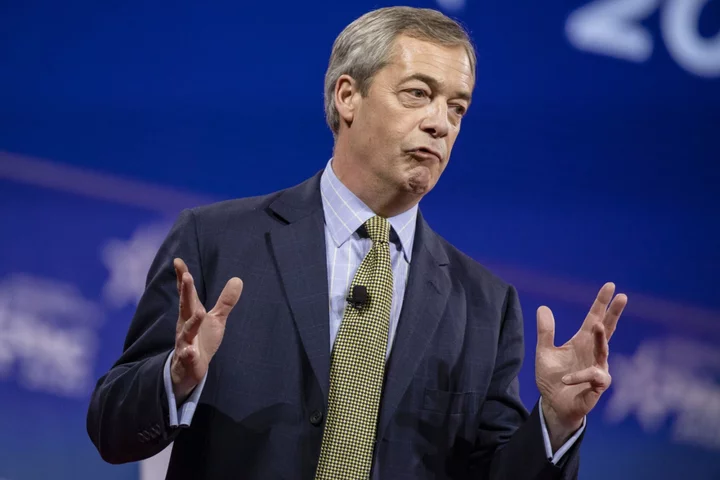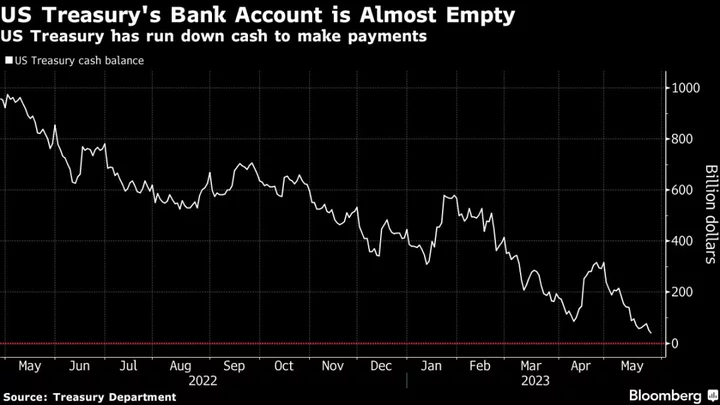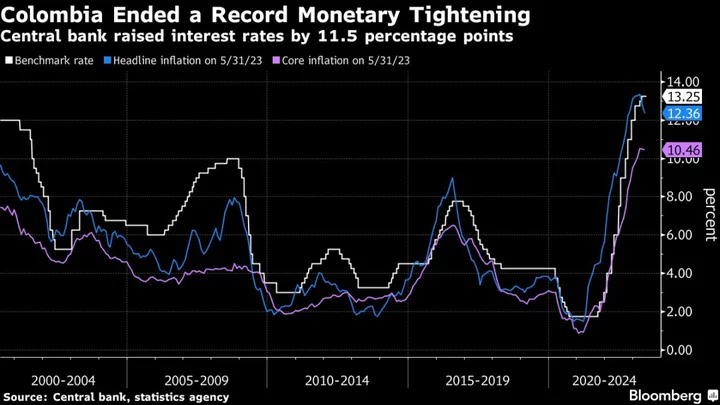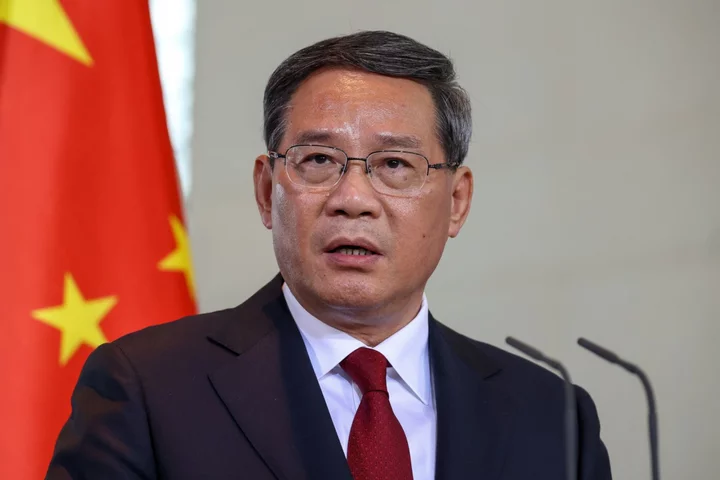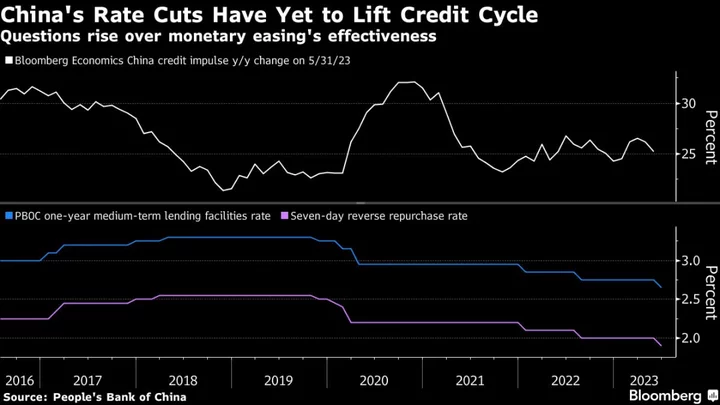Nigel Farage has described the information held about him by his long-time bank as “highly political,” the latest salvo in his campaign against Coutts, the NatWest Group Plc unit that he says abruptly closed his account.
The former leader of the pro-Brexit UK Independence Party said on his GB News show on Monday evening that Coutts had released 40 pages of documents to him after he made a request to access the data they held on him. Brexit is mentioned over 30 times and Russia is mentioned 22 times, Farage said, adding that he would release more details on Tuesday.
“I’m shocked by its contents — it’s very unpleasant and I’ll be absorbing it over the next couple of days and deciding what to say,” he told Bloomberg News by phone on Monday. “It feels almost as if from the tone of thing that I’m sort of public enemy number one.”
Farage declined to share the report, meaning Bloomberg couldn’t verify its contents.
“We do not comment on individuals’ circumstances, including confirming whether or not they are a client,” a Coutts spokesperson said in a statement. A spokesperson for NatWest, which owns Coutts and is 39%-owned by the government after its bailout during the financial crisis, declined to comment.
Farage has repeatedly condemned the decision to close his account, accusing the political “establishment” of blocking his access to banking services. Coutts, which caters to some of the UK’s wealthiest people including members of the royal family, closed Farage’s accounts because he did not deposit enough money, according to several people familiar with the matter. Farage has not denied he fell below the bank’s limit but said Coutts had not previously mentioned it.
Divisive Character
Farage is a divisive character in the UK, widely credited with playing a leading role in the 2016 vote to leave the European Union — where he’d spent about two decades as an MEP. Since quitting UKIP in 2018, he has made regular media appearances and launched new political campaigns, often around the issue of immigration.
He’s previously said he thought his exit from Coutts was because he is a “politically exposed person,” a category that requires banks to carry out checks on elected politicians and their families who could be at risk of foreign bribery.
Banks generally have no obligation to take on customers and have significant leeway to close accounts. Reasons can include level of funds, regulations and reputation.
Farage’s comments have sparked others, including Chancellor Jeremy Hunt, to raise questions about how lenders deal with politically-exposed people. The Treasury has asked the Financial Conduct Authority to step up its review of the subject.
NatWest banks 5,500 PEPs out of a total of about 19 million retail and business customers. Coutts has 600 PEP customers.

